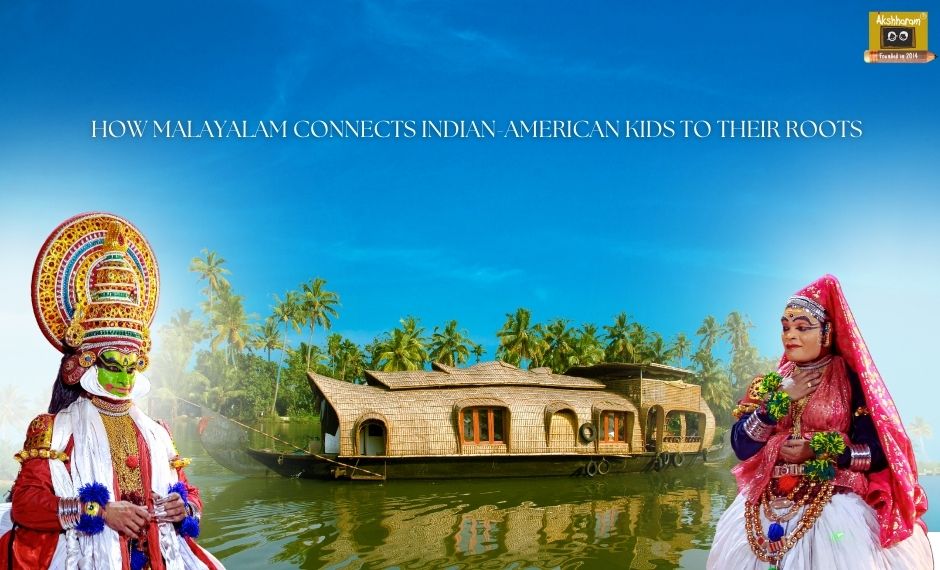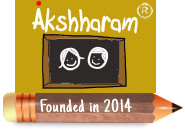How Malayalam Connects Indian-American Kids to Their Roots - Even Without Visiting Kerala

Just imagine a scenario: a home in America where a lot of kids are practicing with their troupe for the upcoming school celebration. Everyone is chatting, kids are shouting and enjoying one another, and English is flowing flawlessly. Suddenly, the phone rings. It's the favorite person of the child who was rocking with the drums. Instantly, their voice breaks; it slowly turns to sweet gestures and lovely tones. "AMMAMMA!" they yell. In these moments, the language of communication becomes the very sound of home, a portable sanctuary of identity and belonging carried across continents. It is not just the words spoken, but the deep, cultural comfort they instantly evoke.
Can Physical Distance Truly Disconnect Them?
Just like in the scenario we discussed, there are many families in America where at least one of the children might have explored America more than they have explored Kerala. The fact is, they may have visited Kerala quite often, but the serene feeling of home is deeply attached to it. Distance is never the main point, the linguistic feeling somehow creates a sense of togetherness and belonging. The true dilemma is that, because they are so far away, they might feel a little disconnected from their Indian roots. A gap can grow between their daily life and their family's culture.
It may be quite surprising that a language can create such a deep rooting to one's culture. But in the case of Malayalam, it is different. The language acts like a container for the emotions, the values, the jokes, and the very identity of being from Kerala. You don't have to be in Kerala to experience it. Through these words and songs, you can feel connected to your heritage, no matter where you are in the world.
Beyond Distance: The Comfort of Mother Tongue
Home is where the heart is, and for every Malayali, they take that emotion wherever they go. It doesn't just happen with Malayalam; be it any mother tongue, people often feel that warmth. Malayalam is equally like a warm hug from a grandmother; it is a language of love. Let's see how Malayalam becomes the anchor of love:
The sound of Intimacy: There are some words used by our family or loved ones, like kuttiye, kunjhe (dear one), that always convey love. Saying Ammumma or Achacha feels far more affectionate than simply saying "grandma" or "grandpa." For a Malayali, conveying our feelings in our mother tongue is a tone of sweet voice; it's softer, more musical, creating the unique sound of a family’s love.
Cultural nuances in expression: Malayalam has special phrases for every feeling. The loving call to eat, "Vaa, kazhikkada" (Come, let's eat), “Vaa povam” (let's go), “kazhicho”, “sukhalle” (how are you) is an invitation full of care. Even a playful scolding from an elder has a specific, loving tone. When you understand these phrases, you're not just learning words. You are learning how your culture shows love, respect, and warmth. You are learning the "heart rules" of your family.
Building a “Linguistic Home”: Through your mother tongue, you can actually build a sweet home inside your house. No matter what is outside, the soothing sounds of your mother tongue echo within it. Thereby, the language becomes a strong anchor, keeping you connected to your family and roots, and giving you a stable and happy identity.
The Malayalam spoken at home is the sound of your family's heart. It teaches you how to love and be loved in the way of your culture, creating a safe space that is uniquely yours. That is where Akshharam, a Malayalam language learning school online, plays a crucial role. It's not about the textbook
What is the Cultural Code Embedded in Malayalam?
Culture and festivals: Through language, an individual can truly express love and affection. Consider the cultural stories and folktales of Kerala. They are influential even when told in the English language, but certain feelings are lost when they are not expressed in Malayalam.
Brewing food into meals: It transforms raw ingredients into recipes, and connects them to the culinary history of their family.
Better connection: Malayalam brings festivals and stories to life, enhancing the understanding of folktales and nursery rhymes. Understanding Malayalam makes the religious rituals and prayers more affectionate and fosters better connection.
The good news is that this deep, cultural connection is not out of reach. In today's world, Akshharam is the best choice for you to connect to your roots. These classes are more than just language lessons; they are a way to deliberately gift our children the 'cultural code' embedded in Malayalam. They provide the tools to understand the jokes in a movie, the prayers at a temple, and the recipes from their grandmother. By choosing to learn, we choose to strengthen that anchor of love, ensuring that no matter where they are in the world, they will always have a way back to the heart of what it means to be a Malayali.
You can trust the team of Akshharam. We not only teach to read or speak, but also guide in writing, as we are the leading and best Malayalam language writing class online. Please visit our website for more details and enquiries.
